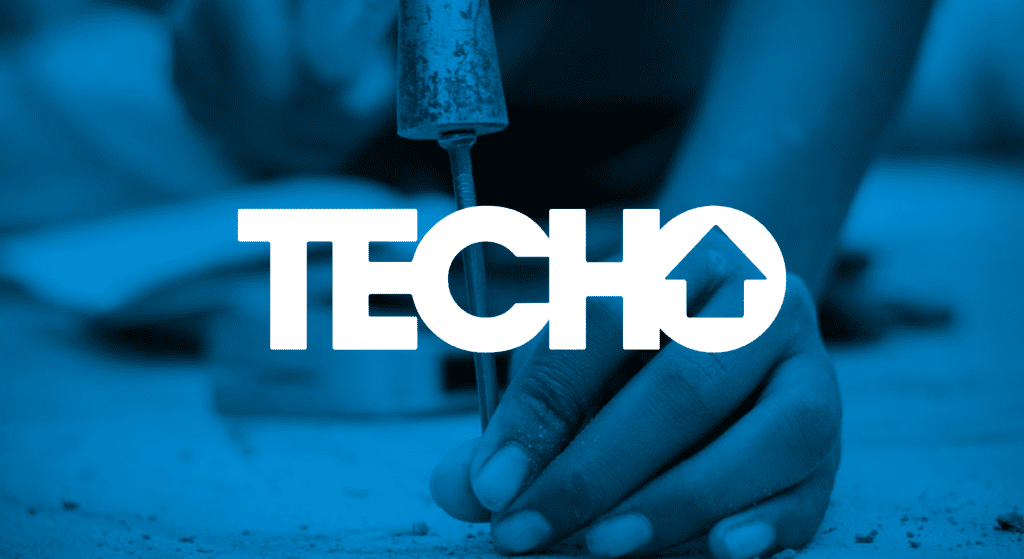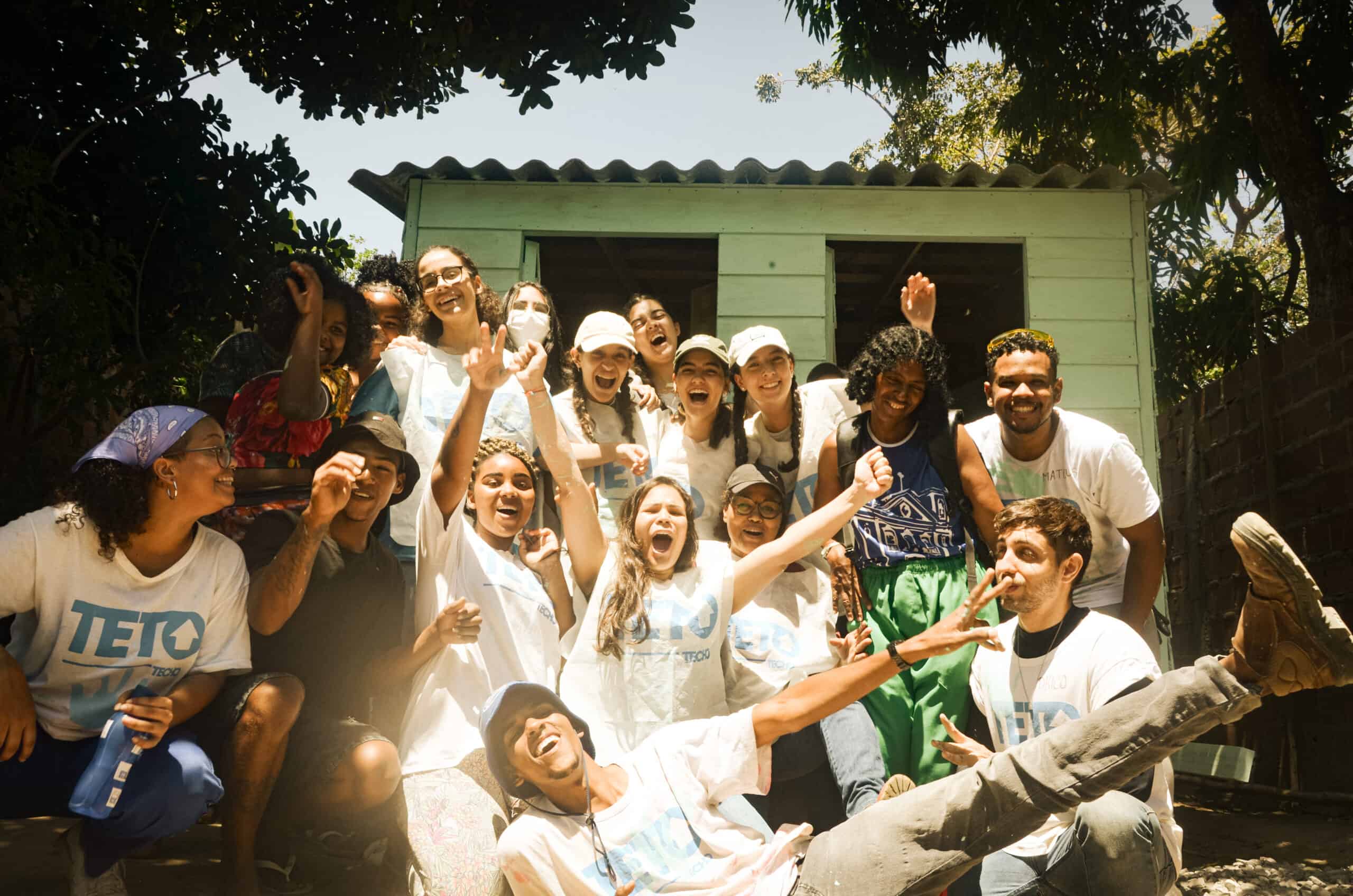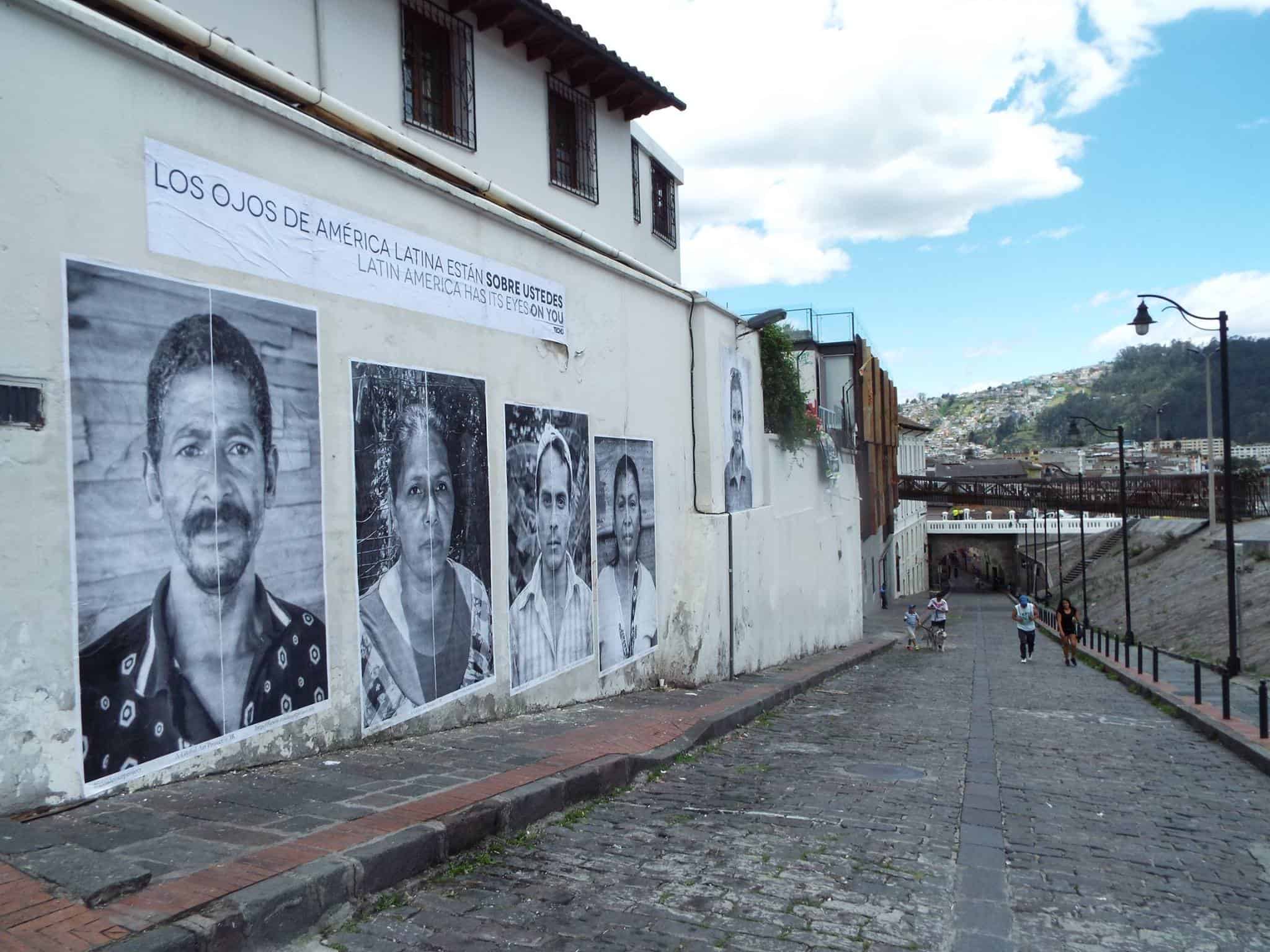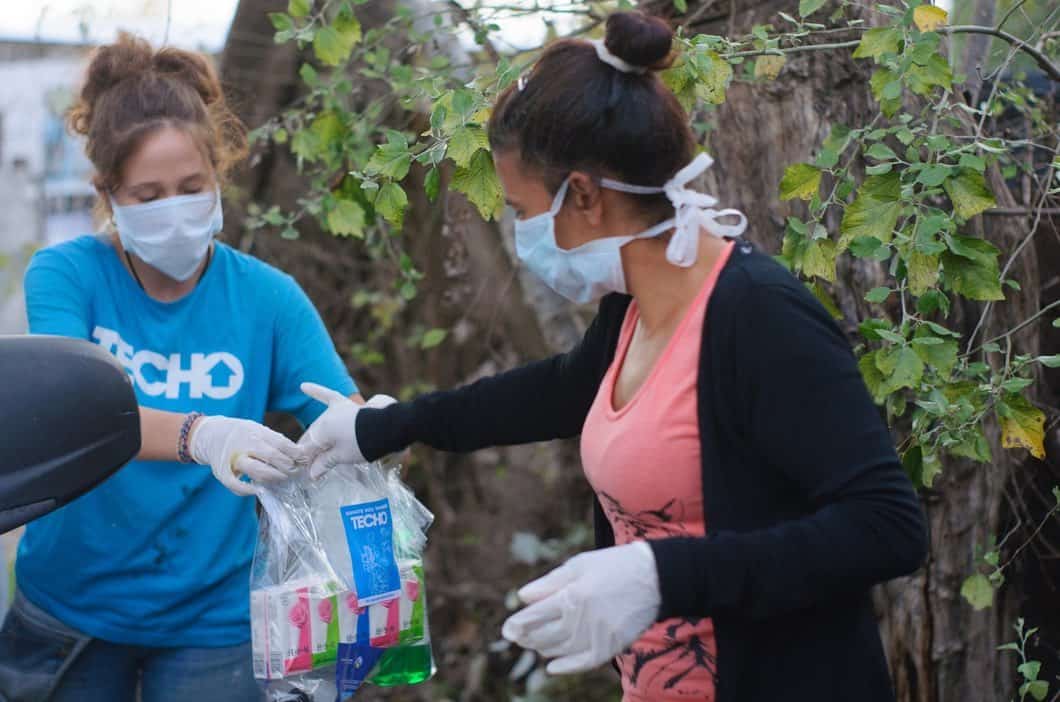Marcelo Lafranconi partió de Uruguay en 2005 sin mucha más claridad que la dimensión del desafío que se venía por delante: organizar la estructura de la oficina de TECHO-Perú (en ese tiempo, de Un Techo para mi País). Partió junto a Inés, su novia de ese entonces para comprender juntos otro tipo de pobreza, aquella situada en los cerros de Lima, con otras dimensiones, lejos de su ciudad, Montevideo.
Marcelo había iniciado su trabajo un año antes, como voluntario en TECHO, después de una visita al asentamiento Punta del Indio. Su encuentro con una familia conducida por un joven de su misma edad, le llamó profundamente la atención y marcó su rol de voluntario. “En ese tiempo, todos hacíamos todo. Éramos un grupo de amigos con una motivación común”, recuerda hoy, con 32 años, casado con Inés Invernizzi e iniciando su rol de emprendedor.
Durante su primer año, Marcelo asumió roles en el área de Logística y Desarrollo de Fondos. “El área de fundraising partió como una preocupación. Era muy impactante muy impactante recibir las primeras donaciones”, relata.
¿Cuál es la impresión del cambio de un país pequeño como Uruguay a uno grande como Perú?
—A nivel general, nos dimos cuenta de nuestra ignorancia. Ahora está muy globalizado, pero el Cono Sur conoce muy poco de Latinoamérica. Yo me lo imaginaba completamente distinto. Los asentamientos son muy distintos. Sus causas son similares, pero geográficamente es muy distinto. Allá viven en la montaña, en el desierto. Donde trabajábamos eran poblaciones migrantes del interior. Era particularmente un asentamiento que quería progresar.
Double Activism
Marcelo conformó el equipo que construyó las primeras dos viviendas de emergencia junto a TECHO. Su meta sería de 100 y el plan era partir con 10, estratégicamente ubicadas, para alcanzar las otras 90 involucrando a grupos de voluntarios.
Ya de vuelta, en 2006, asumió como gerente de Paraguay, Uruguay y Argentina. En paralelo, comenzó a trabajar como voluntario de una incipiente área de Habilitación Social en Uruguay, uno de los países que hoy lidera los procesos de empoderamiento comunitario. “Fue una experiencia bien fuerte, porque era un asentamiento muy difícil, un ‘cantegril’, muy viejo, que tenía muy arraigada su situación y era difícil promover la lógica de organización con redes sociales que estaban destruidas”, cuenta.
Sin embargo, a su salida, en 2011, dio cuenta de algunos de los avances en los asentamientos uruguayos. “Uruguay tienen una base muy fuerte en los propios vecinos. Se ha formado una corporación de vecinos, vecinos muy líderes. Ha sido importante el rol de TECHO en formarlos. Hay pasta de liderazgo en los vecinos y techo lo ha hecho muy bien en motivar e impulsar su formación”, resuelve Marcelo.
¿Cómo enfrentas ahora los próximos pasos, habiendo asumido tantas responsabilidades desde tan temprano?
—Estoy empezando a emprender, a animarme a buscar cosas nuevas y no tanto la seguridad personal. A nivel de los cargos que tuve y aspiro ahora no es que tengo mucha ambición. Necesito que lo que haga me entusiasme. Aún me entusiasma la causa de TECHO y por eso decidí emprender en algo que me entusiasme.
Es una start-up de tecnología, para el pago de cuentas, que se llama Paganza y armamos con un socio con el que fuimos compañeros. El emprendimiento ya ha sido reconocido por su potencial y fue acreedor del BBVA Open Talent 2013, en la categoría de Nueva Banca.
¿Qué desafío te habría gustado seguir asumiendo dentro de TECHO?
—Me gustó mucho formar equipos. Fue muy lindo trabajar con ellos y en TECHO es muy fácil porque la gente tiene una motivación muy grande. Se valora la causa y la motivación y fue una de las cosas que más me gustó. Lo volvería a hacer.
¿Te gustaría volver a trabajar en TECHO?
—Sí. Más que porque me quedaron cosas por hacer, creo que TECHO como causa tiene muchísimo por hacer. A su vez tampoco es fácil porque acá no hay mayores de 30 y en mis tiempos siempre era el veterano, pero sigue siendo una de las causas más motivantes para trabajar.Marcelo Lafranconi left Uruguay in 2005 without knowing much more than the magnitude of the challenge that he would be facing: to organize the structure of the office of TECHO-Peru (at that time called “Un Techo Para Mi País). He left with Inés, his girlfriend back then, to understand, together, a different kind of poverty, the one situated in Lima’s hills…with different dimensions and far away from their home, Montevideo.
Marcelo had begun working a year before, as a volunteer of TECHO, after visiting a slum called «»Punta del Indio»». His encounter with a family, guided by a young man of his own age, caught his attention and marked his role as a volunteer. «»Back then, everybody did everything. We were a group of friends with a goal in common»», he rememebers now, 32 years old, married to Inés Invernizzi and starting his role as an entrepeneur.
During his first year, Marcelo took on duties in the area of Logistics and Fundraising. «»The fundraising area began as a concern. Receiving the first donations was very shocking»» – he says.
Which was the impression caused by switching from a small country as Uruguay to a large one, such as Peru?
—On a general level, we realized how ignorant we were. Nowadays, it’s all globalized but the «»Cono Sur»» (Argentina, Chile and Uruguay) knows very little about Latin America. I imagined it as something completely different. Slums are very different, their causes are similar but they are geographically different. They live in the mountains there, in the desert. Where we worked at, there were inhabitants of the interior of the country that migrated to the slum. This slum’s goal was particularly focused in progressing.
Doble Militancia
Marcelo conformed the team that built the first two emergency houses with TECHO. His goal was to build 100 and the plan was to begin with 10, strategically located in order to reach the other 90 involving groups of volunteers.
Once back home, in 2006, he took over as Paraguay, Uruyuay and Argentina’s manager. At the same time, he started working as a volunteer of a newly-born «»Social Inclusion Program»» area in Uruguay, one of the leading countries regarding community empowerment processes. «»It was a very strong experience because it was a very tough slum, a really old «»cantegril»» whose situation was strongly attached and it was very hard to promote the organization logic with social networks that were destroyed»».
However, during his departure, in 2011, he became aware of the progress in Uruguayan slums. «»Uruguay has a very solid base in the neighbors. There is an association of neighbors who have leadership skills. TECHO’s role in guiding and coaching them has been very important. There is leadership material in the neighbors and TECHO has done a very good job in encouraging and launching their training»», he concludes.
How do you face the next steps, having taking so many responsabilities so early in life?
—i’m beginning to undertake projects, to venture into looking for new things instead of my personal safety. Regarding the positions I had and aspire to have, i’m not very ambitious. I need to be excited by the things I do. i’m still motivated by TECHO’s cause and that is why I decided to venture into something that excites me.
It’s a techonology start-up used for payments, it’s called Paganza and it was founded by a former classmate of mine -now my partner – and I. Our enterprise has already been recognized by its potential and it was awarded with the BBVA Open Talent 2013 award, in the «»Latest Banking»» category.
Which challenge would you like to keep taking on in TECHO?
—I really enjoyed creating teams. It was very pleasant to work with them and TECHO allows you to do so because people are highly motivated. Both our cause and motivation are appreciated it and it was one of the things I liked the most. i’d do it again.
Would you like to work for TECHO again?
—Yes. Especially because I’ve got things left to do, I think TECHO as a cause has still a lot to do. At the same time, it isn’t easy because there’s no one older than 30 here and I was always «»the old one»» during my time in TECHO, but it’s still one of the most motivating causes to work for.




